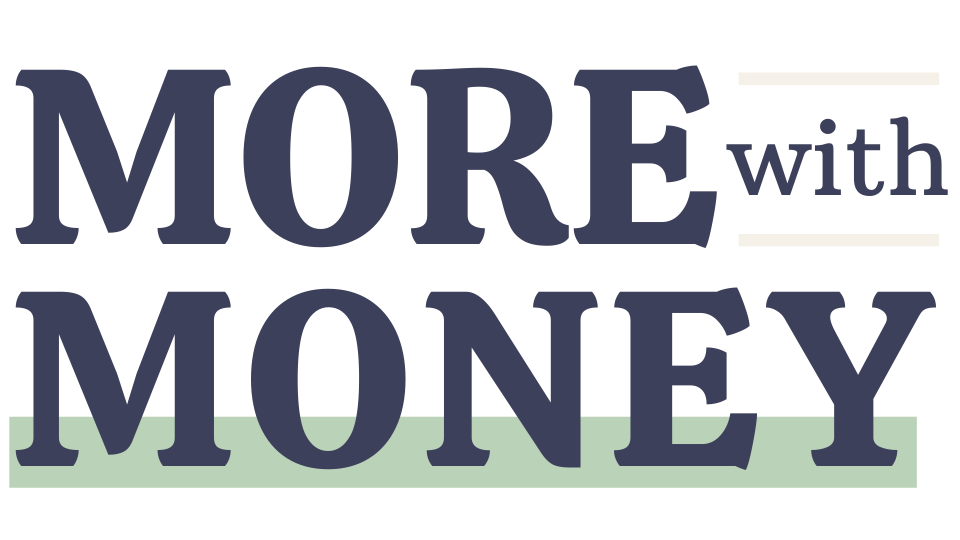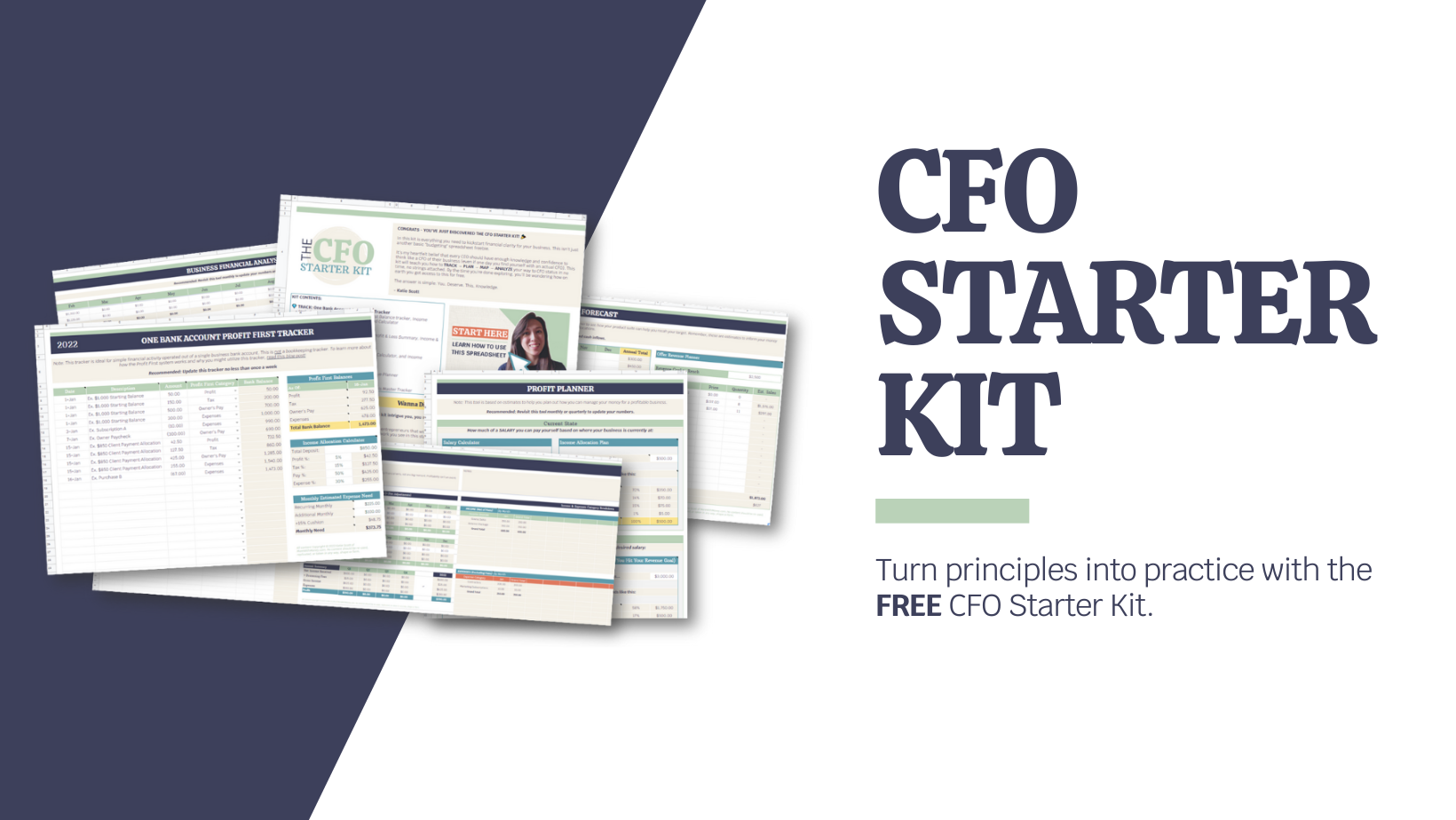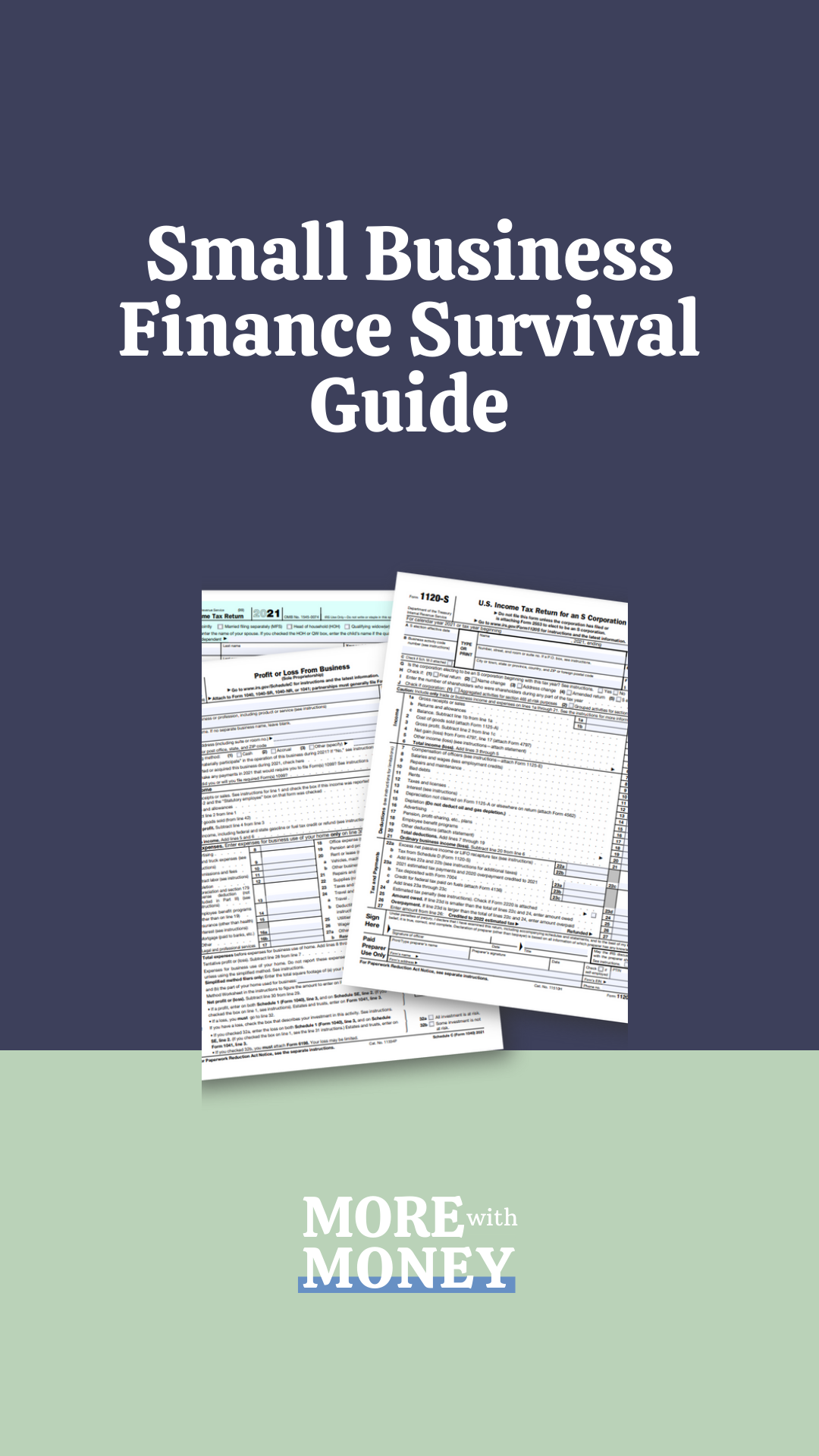Small Business Finance Survival Guide: How to Confidently Run Your New Business
So you have a business or are thinking about starting one...but you're still trying to figure out how to get the financial pieces in order. This post will help you identify the business finance basics you need on your to-do list!
Note: This article is written mostly from a U.S. perspective, but much of it is applicable (or at least similar) in many other countries!
Business Finances 101
A lot of people overcomplicate finance. But, at the end of the day, here’s all you’re really dealing with:
Money moves into and out of my business. To be a manager of my business finances, I have to be intentional about:
HOW that money moves (Separation + Structure)
The COMPLIANCE of my money (Legality)
My AWARENESS of that money (Organization)
Let’s break down each of these concepts a bit further.
Separating + Structuring Business Finances
To manage your finances, you need to make sure that the flow of money in and out of your business is structured well. The first part of this is the separation of your business and personal finances.
You’ve probably heard that you should open separate financial accounts for your business (bank accounts, credit cards if applicable, etc). Do not skip this step!
Opening separate accounts for your business is critical to help you stay organized. And, depending on your business, it may even be a legal requirement.
Beyond this, there’s also immense value in how you’re able to mentally separate yourself from your business when you create separate structures like this. You are a huge component of your business, yes, but it’s not healthy or sustainable to feel like you ARE your business. Creating a separate “identity” as an entrepreneur is going to give you the boundaries you need to truly rest and step away when you need to.
Here’s Your Checklist:
Open a separate business checking and savings account.
Consider the Profit First system for additional accounts!
If using a credit card, have a separate one designated for business use (be extremely careful using a credit card, especially as a start-up!)
Set up your business payment processor accounts as needed (may include Paypal, Stripe, Venmo for Business, etc)
Connect your accounts together and update your payment information for any recurring expenses, as needed.
Legal Compliance of Business Finances
Please note that I am NOT an attorney and am not giving legal advice. But, I will point out a few legal items that should be on your radar to research further as they relate to where you live and what kind of business you have!
Business Set-Up
Look into any requirements in your region or industry regarding licenses, insurance, and permits. In my experience in the online space, however, I don’t usually see people needing much paperwork to start their businesses.
You will also need to look into business entities and determine what the best option is for you. Here’s a simplified rundown of the most likely options (in the U.S.) that you’ll look at:
Sole Proprietors: You’re automatically a sole proprietor (called “sole traders” in some countries) when you start your business, no paperwork needed. However, for legal and tax purposes, you and your business are seen as the same entity. (Meaning you report your business profits on your personal tax return, and if someone were to sue your business, they could come after your personal assets.)
LLCs: With a bit of paperwork (requirements vary by state), you can become a Limited Liability Corporation which is basically just adding a layer of legal protection for your personal assets. You’ll still report business activity on your personal tax return. I would recommend this if lawsuits are likely in your industry and/or you plan to build a team. If you are an LLC, you MUST separate your business and personal finances!
S Corps: An S Corporation gives your business its own identity (and its own tax return). When you reach a certain level of revenue, this can end up saving you money on taxes. However, I always recommend consulting a trusted CPA before electing to become an S Corp. Rarely does an online business owner need to start as an S Corp.
And finally, you’ll want to look into getting the right legal protection in the form of contracts, disclaimers, policies, etc. Ideally, you’d consult with an attorney on this, but there are also a lot of great DIY legal resources out there. You can check out The CEO Legal Loft, The Contract Shop, or Bobby Klinck’s Templates to get you started.
Business Taxes
Left: 2021 Form 1040 (Individual Income Tax Return) and 2021 Schedule C (where you report Profit or Loss From Business for a Sole Proprietorship or LLC). Right: 2021 Form 1120-S (Income Tax Return for an S Corporation)
When your business earns money, it is of course going to be subject to federal and, if applicable, state income taxes.
If you are a sole proprietor or an LLC, those profits will be reported on your personal tax return (US Form 1040). Additionally, you’ll be responsible for self-employment taxes. These are usually half-covered by your employer (Medicare and Social Security taxes on your paychecks), but if you are self-employed you pay both halves.
If you are an S Corp, you’ll file a separate return for business (US Form 1120-S). As an S Corp, you will actually be a real employee of your business, though, so your personal tax return will look like it would with a traditional job! Your business will be responsible for its own income taxes and half of your payroll taxes. (Again, consult with a CPA before S Corp election, as it’s not always going to save you money depending on your revenue!)
If you have employees on your team, you’ll also be responsible for their payroll taxes. I would recommend looking into a payroll system like Gusto or ADP to help you manage this.
If you have contractors on your team, you won’t pay their taxes but you should have any that you’ll pay more than $600 in a year fill out a Form W-9 for you so that you (preferably with the help of an accountant) can prepare and send them 1099s in the new year to help them accurately report their income.
And one final note on taxation - you’ll want to do some research into your industry or area (or consult with a CPA) to find out if you should be charging sales tax on your products or services! Sales tax laws are slowly catching up to the online business world, but they’re extremely nuanced and complex. This blog post is a great starting point!
Organization of Business Finances
Finally, it’s important that you develop a system for organizing and staying up-to-date with your numbers. This involves everything from saving your receipts to projecting future cash flows!
Fortunately, I’ve prepared a series called CFO Habits to help you do just that! Check them out next:
Your Next Steps
Make a list of everything from this post that is now on your radar! Schedule time over the coming weeks to get it done. From start to finish I believe most businesses should be able to lay these foundations within a month of getting started!
If you have any questions or links to great resources to help others with this research, I’d love to hear it! Share in the comments below.
Are you ready to take your financial journey to the next level? Then you may be ready to check out the More With Money Academy!
This ever-growing collection of online courses and trainings are specially designed to support entrepreneurs like you on your path to financial wellness. The Academy contains carefully designed courses that are easy to understand and implement so that you can be empowered with the practical concepts, streamlined systems, and powerful mindset to transform your business and personal finances.
Click here to explore what the More With Money Academy has to offer!
Pin for later
I'd love to continue the conversation in the comments! Feel free to share your thoughts.
Until next time!








